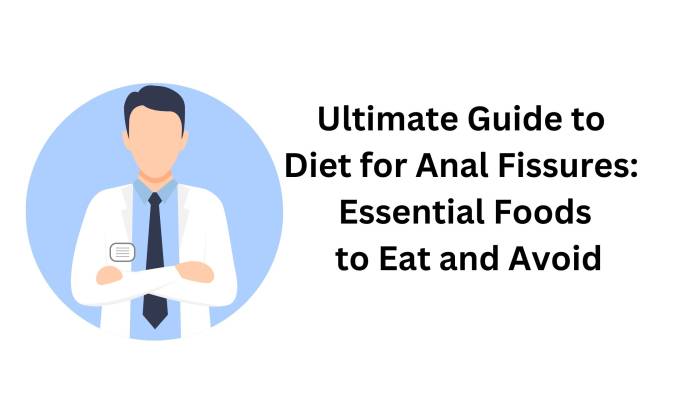
Ultimate Guide to Diet for Anal Fissures Essential Foods to Eat and Avoid
A low-fiber diet, constipation, or straining are common causes of anal fissures, which are excruciating tears in the anus lining. Because it promotes regular, gentle bowel motions and reduces discomfort, an appropriate diet can be very helpful in controlling and preventing these fissures. There are available many Fissure Doctor in Agra.
- High-Fiber Foods:
Your feces will be softer and easier to pass when it has more weight from fiber. Make sure your diet is rich in whole grains (oats, quinoa, and brown rice), vegetables (broccoli, carrots, and leafy greens), and fruits (apples, pears, and berries).
- Hydrating Foods:
Cucumbers, tomatoes, and melons are examples of foods high in water content that can help keep your stool moist and smoother.
- Healthy Fats:
Include foods like avocados, almonds, seeds, and olive oil as sources of good fats. These fats may facilitate easier bowel motions by lubricating the intestines.
- Low-Fiber Foods:
Because they are low in fiber, processed meals, white bread, and pastries can cause constipation and firmer stools. Eat fewer of these things to prevent making your fissure worse.
- Spicy Foods:
Hot peppers and spices can cause discomfort by irritating the digestive system. Select mild seasonings so as not to aggravate the crack.
- Caffeine and Alcohol:
Dehydration is a potential side effect of both that could cause firmer stools. Drinking less alcohol, tea, and coffee will help you stay hydrated and have easier bowel movements.
- Dairy Products:
Dairy products may aggravate constipation in certain people. If dairy products bother you, you might want to cut back on them or replace them with lactose-free ones.
Conclusion
By encouraging frequent, gentle bowel movements and lowering the chance of future aggravation, implementing these dietary strategies can aid in the management of anal fissures. Dr Karan R Rawat is a gastroenterologist at a safe surgery center.



